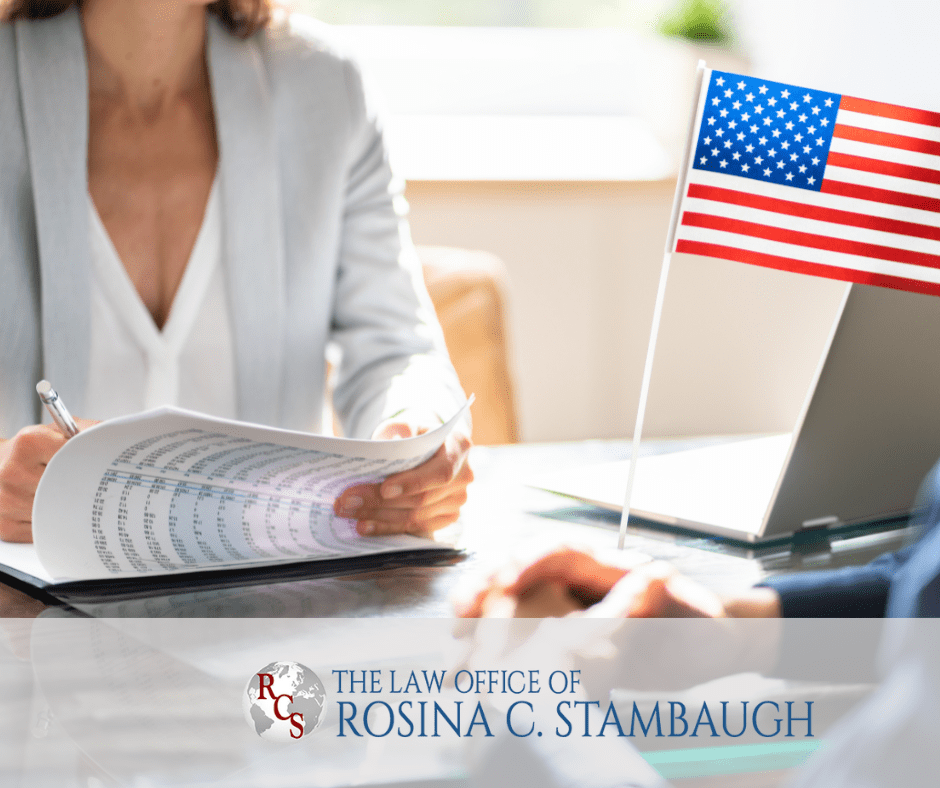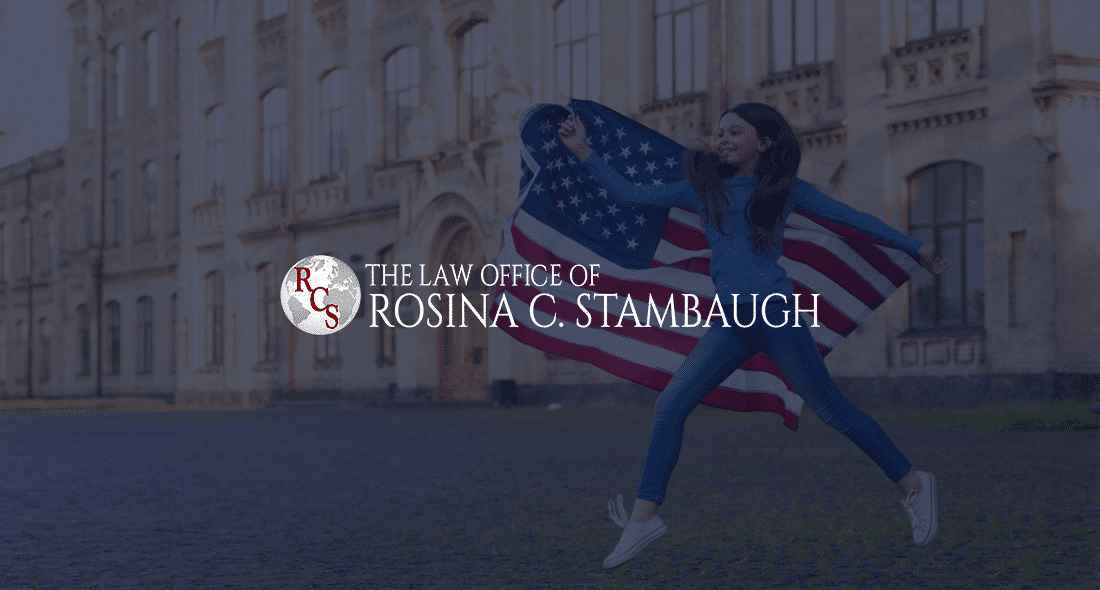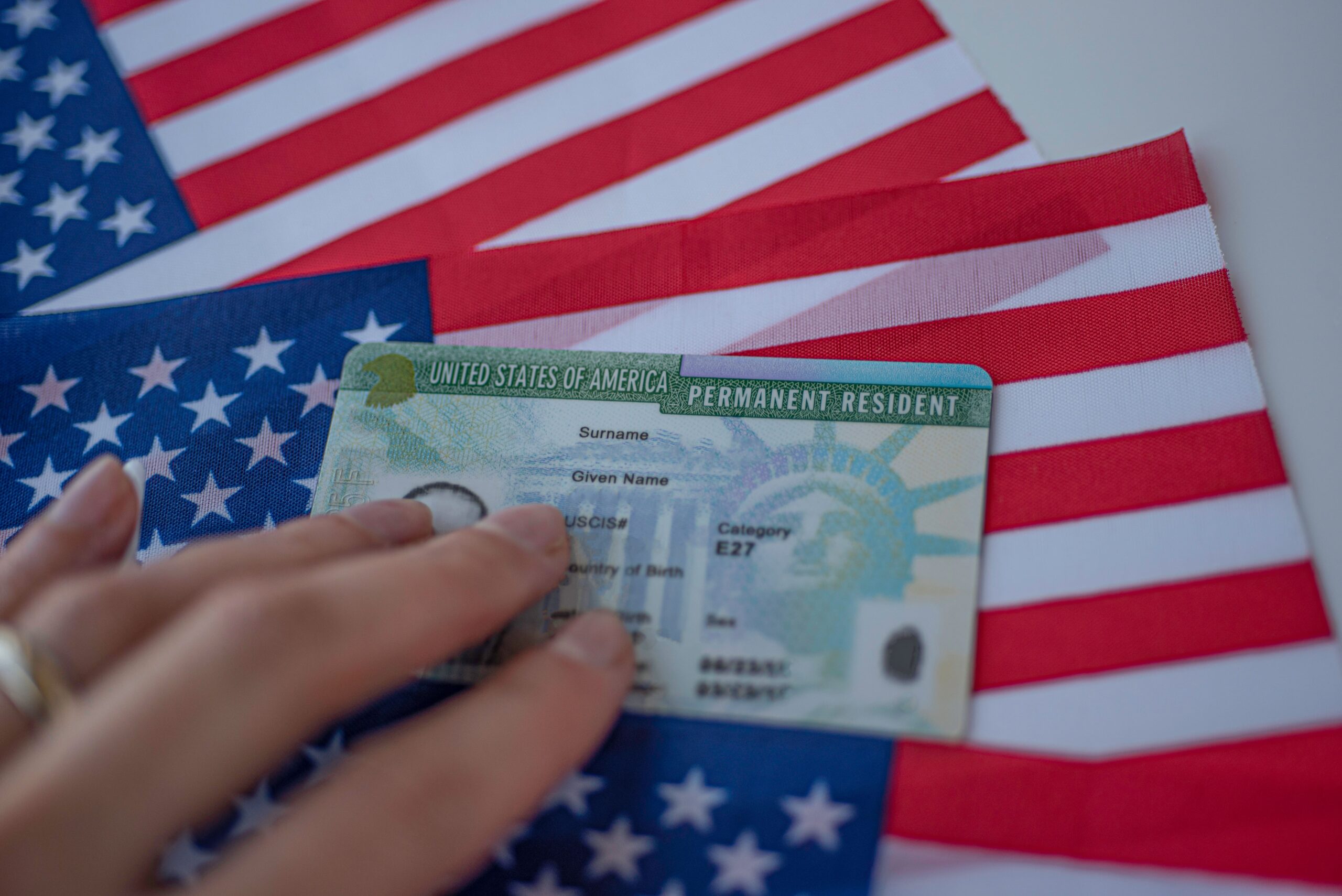Becoming a U.S. citizen remains the dream of many immigrants who have made a home here. But, the naturalization test inspires anxiety in many potential citizens. Throughout this article, we offer naturalization interview tips to help you prepare for and hopefully ace your interview.
Preparation is key to a successful naturalization test. As you prepare, consider contacting The Law Office of Rosina C. Stambaugh. We have supported family and friends through that process and helped many noncitizens become US citizens. We can help you, too.
What Happens During the Naturalization Test and Who Conducts It
Your naturalization interview is the second-to-last step in the naturalization process. Before your interview, you submit your Form N-400, Application for Naturalization, supporting documents, and biometric information to United States Citizenship and Immigration Services (USCIS).
At the Naturalization Interview
At the interview, a USCIS officer will:
- Test your English proficiency,
- Test your knowledge of the U.S. government and history (civics), and
- Ask questions to verify your eligibility to naturalize.
The interviewer evaluates your ability to speak and understand English throughout the interview. To demonstrate your ability to read and write in English, you must correctly read aloud and write one sentence.
For that civics test, the officer asks 10 questions from a list of 100 questions available online. To pass, you need to get six of the 10 questions correct.
Exemptions and Accommodations
You may qualify for an exemption to the English test if:
- You are 50 or older and have held lawful permanent resident (LPR) status for at least 20 years, or
- You are 55 or older and have held LPR status for at least 15 years.
If you are age 65 or older and have been a permanent resident for at least 20 years at the time of filing for naturalization, you will be given special consideration regarding the civics requirement.
You may qualify for an exemption to both tests if you have a disability that would prevent you from passing. To request a disability exemption, a licensed doctor or psychologist must complete Form N-648, Medical Certification for Disability Exceptions. You can also apply for disability-related accommodations, like extra time or sign language interpreters.
Interview Outcomes
Sometimes, the interviewer needs additional documentation. You will need to provide what they request before they approve or deny your application. If you pass the tests and the interviewer identifies no issues with your eligibility, USCIS schedules a time for you to take the Oath of Allegiance. Once you take the oath, you become a naturalized citizen.
If you do not pass, you may retake the test twice. If you still do not pass, the officer will deny your application.
Although rare, the interviewer can deny your application during the test. For example, they may deny your application if they discover you purposefully lied to them.
Tips for Passing Your Naturalization Test
According to USCIS, 88% passed the test on their first try in 2022, and 95.7% passed after retaking it. With those passage rates in mind, the best way to prepare for your naturalization test is simple: practice.
English Test
To practice for the English portion of the test, speak, read, and write in English. If you do not know many fluent or native English speakers, you may find groups to practice online or at your local library.
Civics Test
To practice for the civics portion, study the materials USCIS provides online. Do your best to memorize the questions and answers.
How to Answer the Naturalization Interviewer’s Questions Successfully
Before the interview, review your supporting documents and immigration history. If you cannot locate documents, you can submit a Privacy Act (PA) or Freedom of Information Act (FOIA) request for the information the government has about your case. Give the government several weeks to respond.
Your interviewer will likely ask about your immigration history and application. Ensure your responses are consistent with each other and your application. If the application needs to be corrected, clarify what is incorrect.
Another good practice is to complete mock interviews with a partner. Practice answering out loud. Pay attention to the specific questions, and try not to volunteer more than the question asks.
What Applicants Should Bring to the Naturalization Interview
Bring a copy of your application and the originals of the supporting documents you submitted with your application to the interview. Additionally, bring:
- Your green card,
- USCIS notices related to the interview, and
- Documents substantiating any changes to the information submitted in your application.
If you are unsure what to bring for the naturalization interview, err on the side of caution. Bringing more than you need is better than being asked for a document you cannot provide.
Talk To an Experienced Naturalization Lawyer About Your Upcoming Interview
Practicing is the best way to learn the materials and ease your nerves. To be completely prepared, contact the Law Office of Rosina C. Stambaugh. We can help you practice and offer additional tips about what to expect at your interview based on your unique history.






